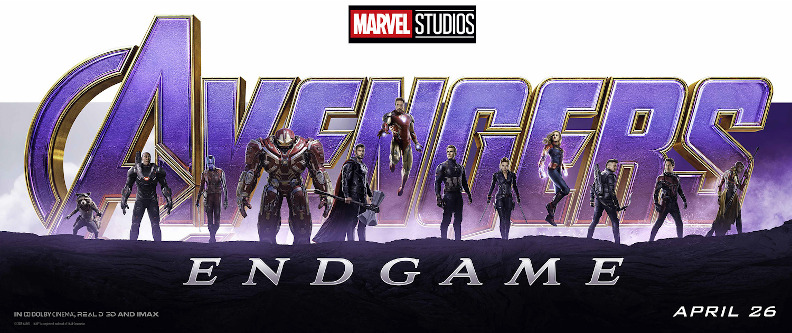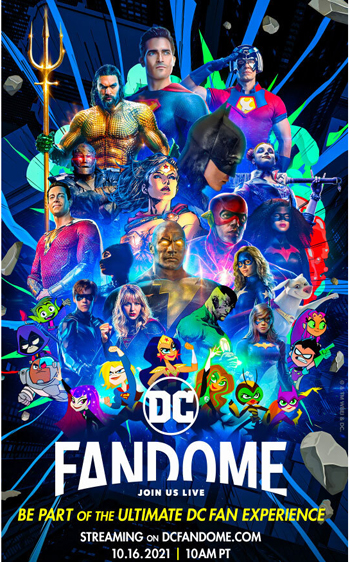
Boxoffice for the Marvel Cinema Universe (MCU) has been impressive over 15 years, but there are signs lately of declining audience enthusiasm and burnout for comic-book adaptations.
“Ant-Man and the Wasp: Quantumania” opened with a sizeable $106.1 million in domestic (U.S. and Canada) boxoffice for the weekend of Feb. 17-19. Walt Disney Studios distributes the film adaptation of the Marvel comic. Rated PG-13, “Ant-Man and the Wasp: Quantumania” suffered a 70% boxoffice decline in its second weekend Feb 24-27, it was revealed today, the most severe falloff for a Marvel-sourced film from wide opening. A distressing second-weekend falloff for a $100 million opening is usually in the 45-60% range.
Reaction was lackluster in audience surveys and in online chat-boards with fan conversations. “With a 47 percent rating, the film is tied with ‘Eternals’ (2021) for Marvel’s lowest Rotten Tomatoes score, and perhaps more telling, it earned a B CinemaScore from audiences, one of the few Marvel titles to do so,” writes Pamela McClintock in the Hollywood Reporter. Rotten Tomatoes is the website that aggregates reviews of film critics and fans.
Late last year, Marvel-sourced “Doctor Strange in the Multiverse of Madness” underperformed boxoffice expectations (its second weekend was down 67%, another huge falloff). Though still a hit, “Doctor Strange” triggered the initial murmurs of audience fatigue with comic book adaptations. Earlier, Warner Bros. Pictures “The Suicide Squad” was blah in 2021 boxoffice, though that theatrical adaptation from DC Comics was muddled by pandemic disruptions.
“By the end of 2026, nine more Marvel Cinematic Universe films will have been released — bringing the grand total to 40 interconnected flicks, starting with ‘Iron Man’ 15 long years ago,” writes New York Post columnist Johnny Oleksinski wrote this month. “Forty! It took ‘Star Wars’ 42 years to reach 11; ‘Star Trek’ 37 years to get to 13. James Bond, 59 years to arrive at 25.” Oleksinski asks “will the MCU finally die?”
Walt Disney Co. bought publisher Marvel Comics for $4.3 billion in 2009, in what was considered a risky move at the time given the comic book giant had been in a bankruptcy. Getting control of all that comic book intellectual property turned out to be a great deal. Disney does the Marvel movie adaptations from comics Avengers, Black Panther, Black Widow, Captain America, and Iron Man (Marvel’s Spider-Man property is at Sony Pictures stemming from a long-ago deal). Disney has produced 23 Marvel-sourced comic book adapations. Meanwhile, Warner Bros. Pictures controls movie rights for corporate sibling DC Comics, whose properties include Batman, Superman, Wonder Woman, and Justice League.

Disney enjoyed an amazing string of blockbusters from Marvel adaptations since over 15 years: For example, “The Avengers: Endgame” grossed a staggering $2.8 billion in worldwide boxoffice ($850 million domestically) in 2019. It’s currently the second highest cinema-grossing movie of all time. Meanwhile, the recent Marvel-sourced movies are merely moderate hits, but the more worrisome is the cinema trajectory is curving downward.
The fanboys remain loyal and a dependable audience. Using comic books as source makes movie marketing easier because fanboys know the properties that are loaded with characters and storylines. The problem may be too much volume, as columnist Oleksinski suggest. Marvel movies are plentiful, Warner ramping up adaptations of DC movies, Disney revives the “Star Wars” movie franchise and Warner Bros. just announced intention to make more “Lord of the Rings” films, all of which fish in the same audience demographic.
Any slowdown in output of glossy fanboy movies is a worry to cinemas. Big-budget fantastic movies are the mainstay of movie theaters, and Disney — with its Marvel comic-sourced films as a bedrock — corals a staggering 40% of domestic boxoffice with its entire theatrical slate in a normal year. So, cinemas are dependent on Disney, which so far remains firmly in favor of theatrical release. The domestic boxoffice share of a major studio (there are five) typically is in the high teens as a percentage, so Disney’s 40% slice is outsized.
Hollywood’s major movie studios are suddenly caught up in cost cutting, because four of Hollywood’s five majors launched their own streaming services. Those streamers rolled up operating losses. For example, Comcast says that its Peacock streamer at its NBCUniversal unit incurred a staggering $2.5 million in losses last year. Peacock launched in mid-2020.
Cuts came when studios and investors were unnerved by heavier losses and program expenses than anticipated coupled with realizing video streaming has lower ceiling than first anticipated. Consumers are picky and dart around cancelling frequently, so the ultimate-future revenue for the video streaming is lowered from estimates a few years ago.
“The streaming business, which is growing, is not delivering the kind of profitability” that traditional linear TV networks have delivered for decades, Disney chief Bob Iger said in a company earnings conference call earlier this week. “We’re going to rebalance a bit.”
Part of Disney’s rebalancing is capping spending on movies. Disney’s splashy Marvel adaptations that cost $175 million-$290 million to produce. Because they are based on well-known comic book properties, they are easier to market than an original-concept films.
To break the monotony of formulaic comic book adaptations, studios and filmmakers add new wrinkles. But a current trend of injecting semi-serious dark and brooding is falling flat. The current “Ant-Man” (the third movie adaptation of the property), “Doctor Strange” and “The Suicide Squad” serve up a dark operatic vibe that audiences did not particularly enjoy. Audience buzz was mixed, while for nearly a decade most films in the genre were warmly embraced.
An earlier new wrinkle to invigorated the genre was humor, epitomized by “Guardians of the Galaxy” in 2014. Heroes delivered funny lines of self-aware humor almost winking at the audience, which was a contrast to prior comic-book adaptations that presented straight-forward action-adventure. “Deadpool” is another Marvel movie property pushing self-parody. But self-effacing humor sudden became common a grew tedious.
Disney promotes its Marvel Cinema Universe to organize, hype and orchestrate various creative shifts such as creative turns to humor or darker drama. The MCU connects various stories and franchises, including crossovers. All the interconnection delights hard-core aficionados, though can be puzzling to casual viewers not familiar with backstories.
While the Internet has only reached version 2.0, MCU is up to version 5.0, we’re told. Things seem to move at lightning speed in the superhero world.
Related content:
Leave a Reply